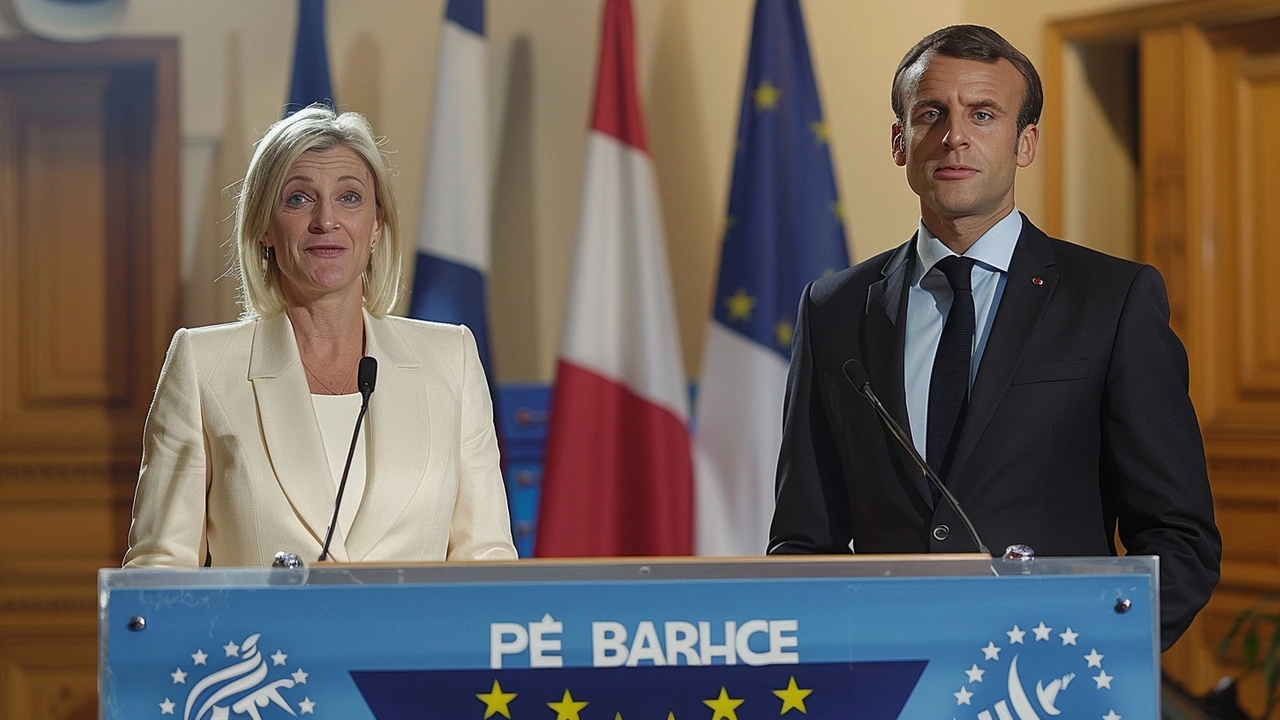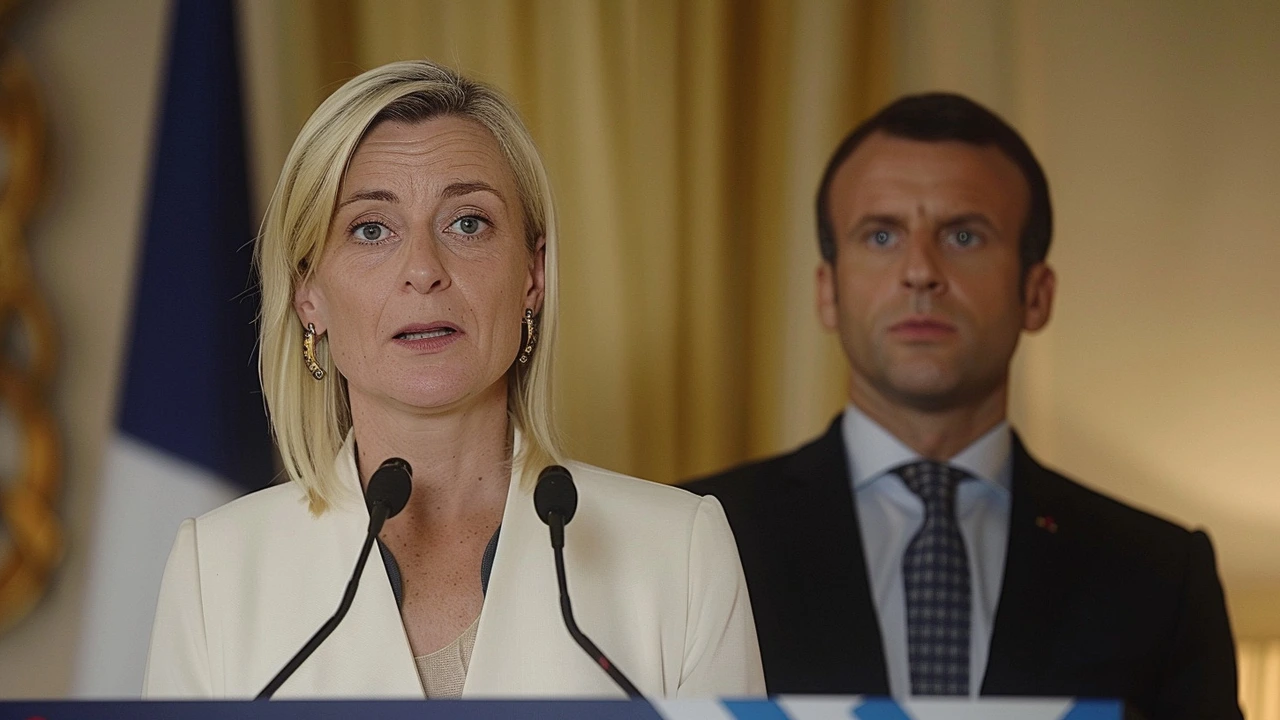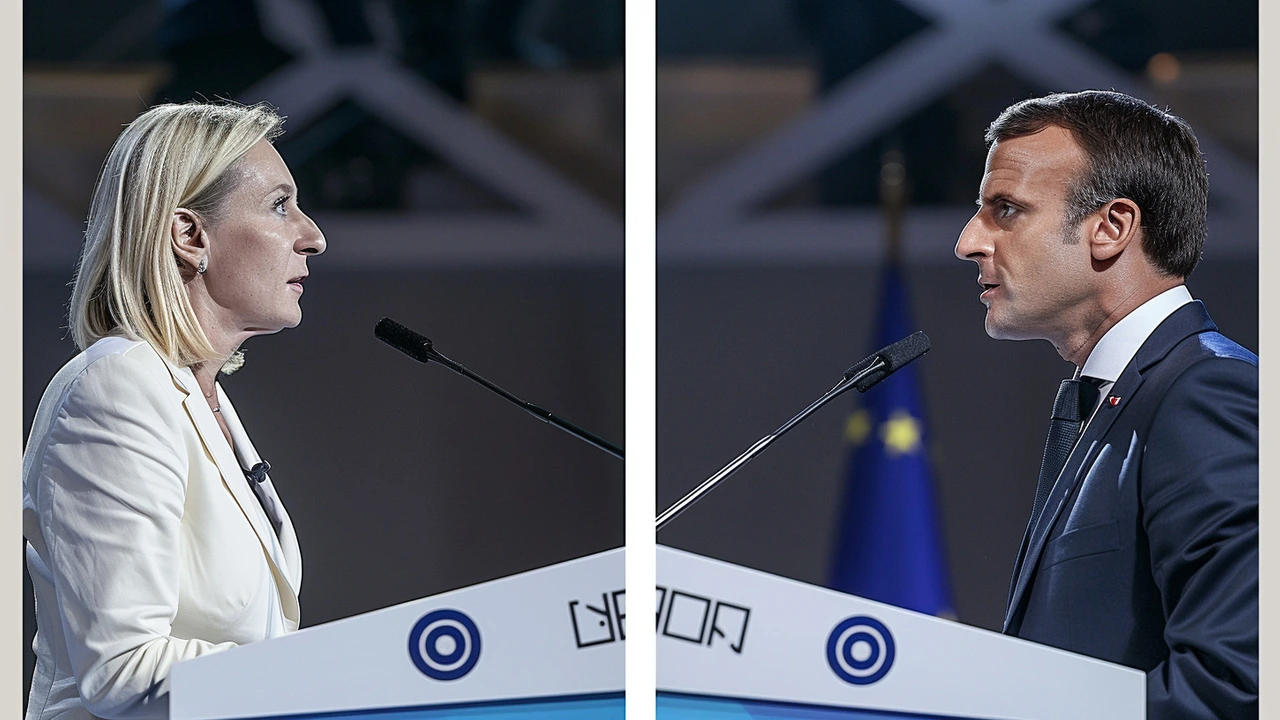Introduction
In a significant political shift, far-right parties in Germany and France have made significant gains in the recent EU elections. Germany's Alternative for Germany (AfD) is projected to secure a record 16.5 percent of the vote, marking a 5.5 percentage point increase from the previous 2019 elections. Meanwhile, France's National Rally, led by Marine Le Pen, is expected to secure approximately 33 percent of the vote, more than double the score of President Emmanuel Macron's liberals. These results highlight a broader shift rightwards across the European Parliament, raising questions about future policies on climate, agriculture, and migration.

Germany's Political Landscape
The rise of the Alternative for Germany (AfD) signifies a major political shift within the country. With the party projected to secure 16.5 percent of the vote, a notable increase from their 11 percent in 2019, the AfD's strong showing underscores its resilience ahead of the federal elections next year.
The conservative bloc in Germany, which includes the Christian Democratic Union (CDU) and the Christian Social Union (CSU), has been forecast to come first, securing 29.5 percent of the vote. This maintains their position as the leading force in German politics. However, the performance of the Greens, who have fallen by 8.5 percentage points to 12 percent, reflects a significant shift in voter sentiment.
Chancellor Olaf Scholz's Social Democratic Party (SPD) and the Free Democratic Party (FDP) also faced setbacks in this election. The SPD, once a dominant force in German politics, has seen its influence wane, while the FDP's performance remains lackluster. These results indicate a challenging road ahead for the traditional parties as they navigate the evolving political landscape.
Implications for Germany
The AfD's rise is expected to have significant implications for Germany's policy direction. The party's stance on issues such as immigration, European integration, and environmental policies sets it apart from the more established parties. This shift could lead to a more fragmented and polarized political environment in the lead-up to the federal elections.
Moreover, the decline in support for the Greens suggests a potential setback for climate policies in Germany. The Greens have been strong advocates for ambitious climate action, and their reduced influence may impact the country's ability to meet its environmental goals.

France's Political Dynamics
In France, the National Rally's projected success is a significant development. Marine Le Pen's party is set to secure around 33 percent of the vote, highlighting a growing appeal among French voters. This outcome surpasses the performance of President Emmanuel Macron's liberal party, which has struggled to maintain its previous level of support.
The National Rally's rise can be attributed to several factors, including public dissatisfaction with the current government's handling of domestic issues and growing concerns about immigration and national security. Le Pen has successfully capitalized on these sentiments, positioning her party as a formidable force in French politics.
Consequences for France
The strong showing by the National Rally is likely to influence France's policy direction, particularly in areas such as immigration, national security, and European integration. Le Pen's party has consistently advocated for stricter immigration controls and a more assertive stance on national sovereignty, which could lead to significant policy shifts if they gain further influence.
Furthermore, the National Rally's success may pose challenges for Macron's administration, which will need to navigate a more polarized political landscape. The upcoming elections in France will be closely watched as a barometer of public sentiment and the potential for further shifts in the country's political dynamics.

Broader Implications for Europe
The gains made by far-right parties in Germany and France are part of a broader trend observed across the European Parliament. These parties are expected to exert greater influence over policy areas such as climate, agriculture, and migration, potentially altering the direction of EU initiatives in these fields.
However, analysts note that despite their gains, far-right parties are not entirely united. There are significant differences in their agendas and priorities, which may hinder their ability to form cohesive alliances. This lack of unity could limit their effectiveness in pushing through their policy agendas at the European level.
Future Outlook
As Europe grapples with a shifting political landscape, traditional parties will need to adapt to the changing dynamics. The rise of far-right parties presents both challenges and opportunities for the established political order. It will be essential for traditional parties to address the underlying concerns driving support for far-right movements, such as economic inequality, immigration, and national identity.
In conclusion, the recent EU elections have marked a significant moment in European politics, with far-right parties making substantial gains in Germany and France. These developments are likely to influence future policy directions and add to the evolving narrative of European politics. The coming years will be pivotal as traditional parties and far-right movements vie for influence and seek to shape the continent's future.







Post A Comment